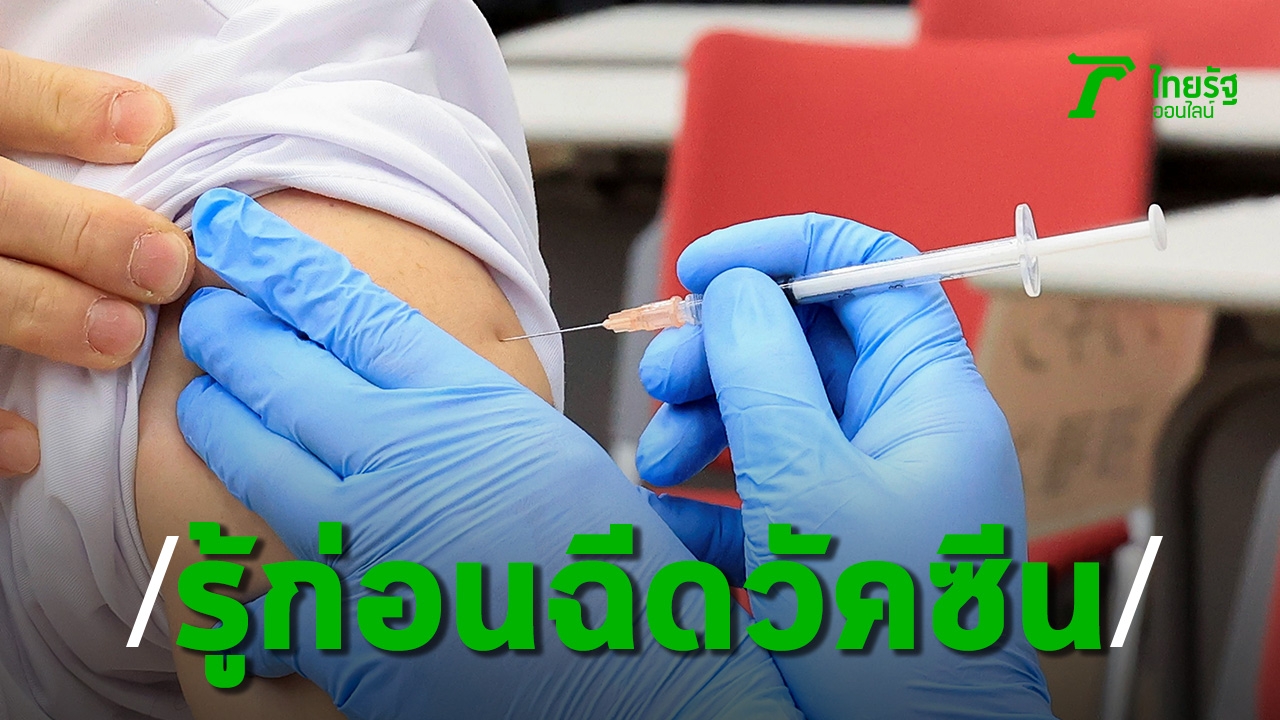Cumulative number of people who received the vaccine (28 February – 4 March 2021) total 17,697.
- 15,981 medical / public health personnel
- Other staff Who have the opportunity to contact 1,603 patients
- 22 people with underlying disease
- 91 people in risk areas
Of the 17,697 people with the COVID-19 vaccine, 270 cases were 1.5% of the adverse reactions after vaccination. Vaccine recipients report symptoms through the “Ready Doctor” line as follows:
- Pain and swelling at 24% injection
- Nausea 15%
- Dizziness 13%
- Myalgia 8%
Causes of adverse reactions after vaccination
- Fear of injections / vaccines Ah, to the point of dizziness, fainting.
- Other illnesses / illnesses such as food poisoning, flu, but few symptoms. When receiving the vaccine, accompany the fever.
- Vaccine reaction Some people may be allergic to various substances. In the vaccine until causing side effects But it is very rare And have a previous history of allergic to this vaccine
- Restrictions from the administration of vaccines, such as the vaccine being too cold during the injection. May cause more pain
- I don’t know why This section requires further study and research.
–
Preparation before the COVID-19 vaccination
1. Determine who is still not supposed to be vaccinated.
– If pregnant, the injection appointment should be postponed to the postpartum period.
– Are treating a serious illness The injection should be postponed until it is recovered.
– having a medical condition before vaccination such as high fever, severe diarrhea The injection appointment should be postponed first.
2. A person who has a history of vaccine or drug allergy must inform the staff before getting the COVID vaccine.
3. Get enough rest Should not skip food before vaccination.
4. Check into the target audience. Who have been registered to be vaccinated (March 2021)
– medical and public health personnel Outpost staff
– general public in vulnerable areas People with 6 medical conditions and obesity.
Guidelines for before-after vaccination
–
– If you have chronic illnesses, drug / vaccine allergies, should inform your doctor before vaccination.
– You should not take a fever medication or pain reliever before vaccination. This is because the drug may suppress the inflammation, reducing the response of the vaccine.
– What medications are you taking? Always let your doctor know.
– Observe the side effects at the hospital at least 30 minutes before returning home.
– When you go home May find that side effects occur such as rash, pain, swelling at the injection site. Or a low fever After 30 minutes to 2 hours of vaccination, symptoms will gradually subside, but if the fever is very high. Hurry back to see a doctor or call 1669.
-After 3 days of vaccination, the chances of allergies and side effects from the vaccine were very rare. You should continue to observe symptoms until 30 days.
– .

